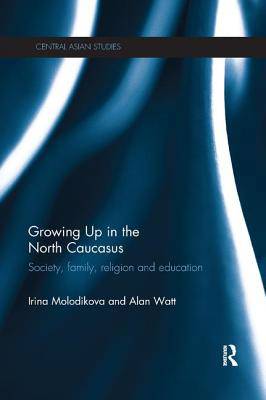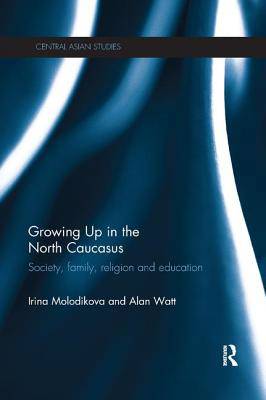
- Afhalen na 1 uur in een winkel met voorraad
- Gratis thuislevering in België vanaf € 30
- Ruim aanbod met 7 miljoen producten
- Afhalen na 1 uur in een winkel met voorraad
- Gratis thuislevering in België vanaf € 30
- Ruim aanbod met 7 miljoen producten
Growing Up in the North Caucasus
Society, Family, Religion and Education
Irina Molodikova, Alan WattOmschrijving
Investigating changes in upbringing in the North Caucasus, a region notorious for violent conflict, this book explores the lives of the generation born after the dissolution of the USSR who grew up under conditions of turmoil and rapid social change. It avoids the 'traditional' presentation of the North Caucasus as a locus of violence, and instead presents the life of people in the region through the lens of the young generation growing up there.
Using focus groups with teachers and students of different ethnic groups, as well as surveys and essays written by children, the book suggests that while the legacy of conflict plays a role in many children's lives, it is by no means the only factor in their upbringing. It explores how conflict has influenced upbringing, and goes on to consider factors such as the revival of religion, the impact of social and economic upheaval, and the shifting balance between school and parents. As well as revealing the dynamic influences on children's upbringing in the region, the book presents recommendations on how to address some of the challenges that arise. The role of government in education is also evaluated, and prospects for the future are considered. The book is useful for students and scholars of Education, Sociology and Central Asian Studies.
Specificaties
Betrokkenen
- Auteur(s):
- Uitgeverij:
Inhoud
- Aantal bladzijden:
- 206
- Taal:
- Engels
- Reeks:
Eigenschappen
- Productcode (EAN):
- 9780815369158
- Verschijningsdatum:
- 23/10/2017
- Uitvoering:
- Paperback
- Formaat:
- Trade paperback (VS)
- Afmetingen:
- 156 mm x 233 mm
- Gewicht:
- 408 g

Alleen bij Standaard Boekhandel
Beoordelingen
We publiceren alleen reviews die voldoen aan de voorwaarden voor reviews. Bekijk onze voorwaarden voor reviews.











